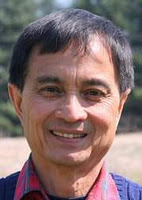Thank you very much Dr. Peang-Met for raising up this very important controversial debate. In Cambodia as people have been embedded by non-independent mass media including the unalienable traumatic past of war and genocide, the group of stability and stomach need, has been conveyed by majority. However, Buddhists who have learned and experienced deep understanding of the teachings see that the highest goal of Buddhism is “liberty”, not “the four necessities”. In practice, Nama (liberty) and Rupa (four necessities) must be equal and in balance.In Vipassana meditation, practitioners cannot get into the Dhamma stream if one cannot balance Nama and Rupa. Socially and politically observing, Cambodia is not in the stage of any thing identical to these three stages. Scandals of non-independent judicial system, economic development through poor evictions, non-independent mass media, rampant corruption from tops to bottoms, political autocracy, favoritism and cronyism etc. have been lingering on the murky stage…do we see Cambodia is in the pathway of engineering in development and stability, engineering in creating liberty, or engineering in balancing of both social commodities?
Many readers emailed me following my series of articles on replacing Cambodia’s dictatorship with a democratic form of government. As many emails contained similar concerns, I have grouped those with similar themes and will use this column to deal with two.
I agree with readers who argued that what Cambodia needs — “first and foremost,” as a respected Khmer reader and author put it — is for the people to have “a filled stomach and stability.”
My “teachings” in this column mirror the substance of the “Introduction to Government and Politics” manual I wrote during my tenure at the University of Guam — that most of the world’s nation-states aspire to some common goals by giving government the task of providing for independence (free from outside control), stability (order and security) and economic and social well-being for all citizens. Cambodians should aspire to nothing less.
The fundamental philosophical conflicts between Western and Eastern civilizations — the West believes in the individual and his/her basic rights and freedom first; the East believes in the community and its security-stability first — have evolved.

